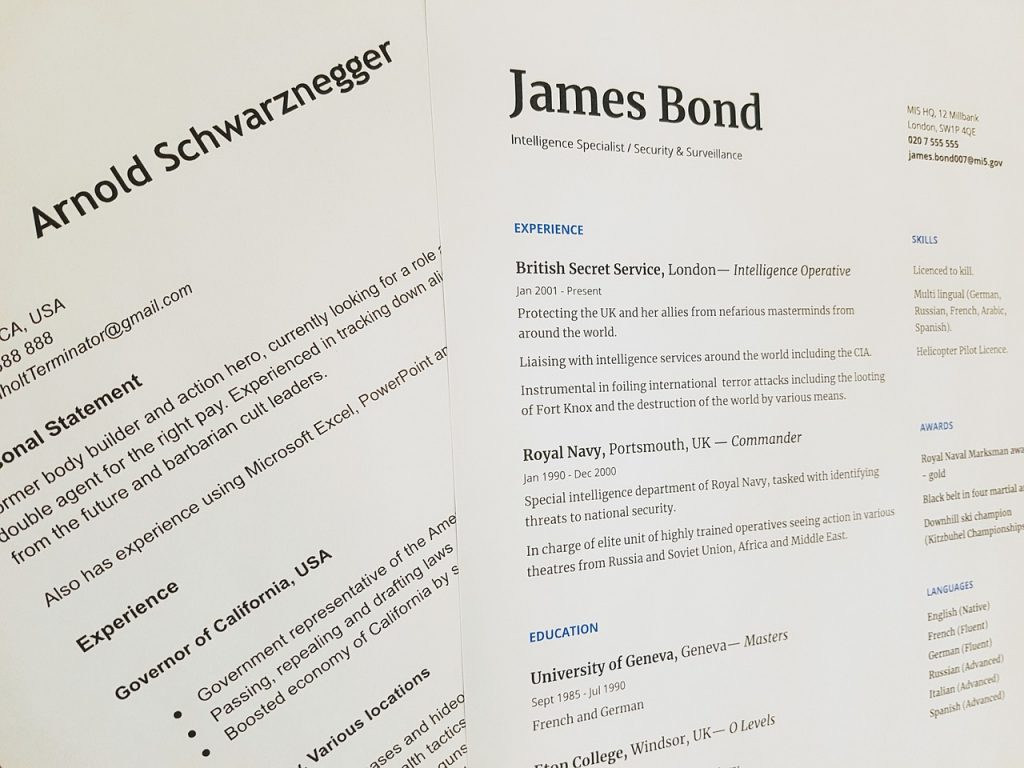Table of Contents
In the career development phase, you hear the terms resume and curriculum vitae (CV) all the time. However, it is not easy to chalk out differences between a CV and resume most of the time. The Curriculum Vitae is a Latin phrase that means course of life, while résumé is a French word that means summary. You may also confuse while using each document type. A significant number of people often use CV as a synonym for resume and vice versa.
On the other side, both CV and resume also have some similarities. Second, their prime objective is to portray you as the most qualified candidate. Third, they act as an instrument to secure an interview for you. Despite these similarities, there are significant differences between a CV and resume in length, content, and use. According to experts of Affordable Dissertation UK, there are three critical differences discussed below in full detail:
Difference Of Content
A CV contains the whole history of your academic achievements and awards. It comprises everything studied, a list of publications, obtained skills and attended workshops and conferences. There can also be a list of one’s interests and hobbies. Therefore, its length can be varied depending on the length of your academic credentials. The length of a CV depends upon the size of experience and professional accomplishments. So, it may differ from person to person. Following are the key elements of a CV:
- Full name
- Contact information
- Professional title, resume summary or resume objective
- Research interests
- Education
- Publications (both academic papers and books)
- Teaching or lecturing experience
- Work experience
- Conferences and courses
- Skills
- Certificates
- Languages
- Grants of fellowships
- References
On the other hand, a resume entails only relevant information such as professional skills, experience, and qualifications for a particular position. A good resume highlights your previous critical contributions. You try to emphasize skills as much as possible to secure a place for the interview. Following are some of the fundamental tenets of a resume:
- Full name
- Your job title, or the name of the position you’re applying for
- Contact information
- Resume summary or objective
- Work experience
- Education
- Relevant skills
- Languages and proficiency
- Relevant certifications and interests (if any)
Unlike a resume, which can be changed to best suit the applicant, a CV is organized chronologically. I believe that the main difference between a CV and an application is that a CV is designed to be a thorough record of your career history.
Difference Of Length
There is a stark difference between the length of a CV and a resume. The resume must not exceed the limit of two pages. However, you can add a page for the relevant publication and works to stand out among the rest in an extreme case. For instance, if you have experience of more than 15 years, you must go for two pages. Otherwise, summarize your work experience and relevant skills on a single page.
In contrast, there is no limit to the length of a CV. It merely depends upon your experience and academic accomplishments. For instance, you can enlist your research publications, presentations, and posters that means you can extend the length of a CV as much as possible
Difference Of Use
CVs are primarily used for academic purposes, such as applying for a position in the education- sector. It may include universities, fellowships, and grants. For instance, you need to use a CV if you apply for postdoctoral positions in higher education institutions or high-level research positions in the industry. Therefore, you need to know that where you are going to apply.
The resume is used when applying for positions in the commercial industry, non-profit organizations, and the public sector. It is often used after one year of experience in the industry.
Geographical Impacts
For instance, in Australia, India, Pakistan, and South Africa, employers used them interchangeably. Furthermore, recruiters do not use the term resume in some parts of the world, like the United Kingdom, New Zealand, and other European countries. They use the term CV for both CV and resume. However, in the United States of America, recruiters do distinguish between CV and resume.
Therefore, it is imperative to understand the geographical nuances of these two terms. In case of any doubt, you must also confirm from the employers about the specification of the required document.
Read This Also: Why Are Colleges Interested in Students Who Take Rigorous Courses
The Bottom Line:
In a nutshell, there is a significant difference between Curriculum Vitae (CV) and Resume. Hence, you must know all these differences to avoid any inconvenience while applying for the job and secure a place for the interview. It would be best if you remembered that a resume summarises your previous work, whereas a CV accounts for your long academic accomplishments. In addition, a CV is having general information, whereas a resume is to the point and targeted for a specific job. However, it is up to you to decide which is befitting for your purposes and job-seeking activities.

